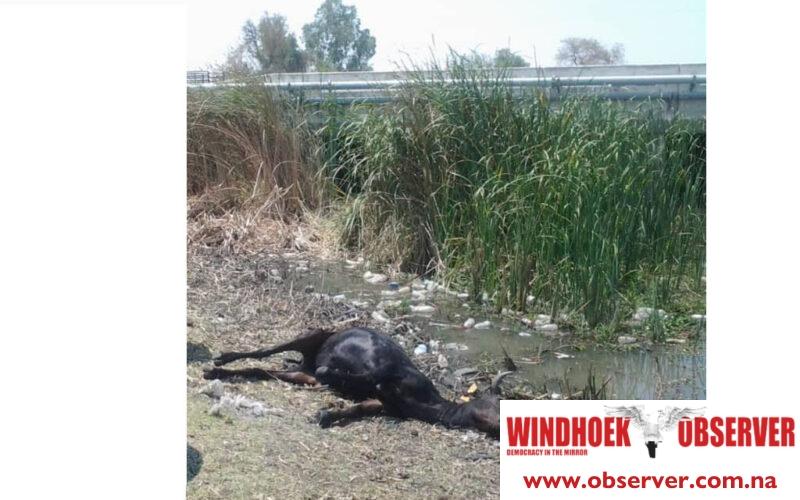Niël Terblanché
In response to the alarming rate of cattle deaths in the Zambezi region, the Ministry of Agriculture, Water, and Land Reform (MAWLR) has committed nearly N$3 million towards intervention measures.
This action follows a comprehensive investigation by a team deployed in November 2023 to the floodplains of the region, an area that has seen hundreds of cattle deaths since July, affecting farmers’ livelihoods and the local economy.
The investigation, spearheaded by senior officials from the Directorate of Veterinary Services (DVS), focused on the Kabe South constituency, where high cattle mortalities were reported between June and November 2023.
The team visited 23 cattle posts across 12 Crush-pen areas, collecting crucial data on the health, movement history, vaccination status, and grazing conditions of the affected cattle.
Findings revealed that a staggering 585 cattle had perished by the end of October 2023, with the majority being vulnerable groups such as the old, pregnant, lactating, and young.
More than 80 percent of the cattle were found to be in poor body condition, and similar grazing conditions were noted across the visited areas.
The investigation concluded that the primary cause of death was drought, exacerbated by diseases such as liver fluke, heartwater, pasteurellosis, black quarter, and worm infestation.
Alarmingly, the investigation discovered that around 80 percent of the affected farmers had not vaccinated or dewormed their livestock, and about 75 percent failed to provide essential feed supplements during dry periods.
These oversights have significantly contributed to the vulnerability of the cattle population to disease and malnutrition.
In response to these findings, MAWLR has taken decisive action by offering free services and procuring various drugs and remedies to support the farmers, amounting to a total expenditure of N$2,8 million.
This includes vaccines against Anthrax, Botulism, and Black-quarter, along with multi-minerals, vitamins, dewormers, and some antibiotics. Remarkably, DVS officials in the Zambezi region have successfully vaccinated 89,152 cattle, achieving a 99 percent vaccination rate of the targeted population in the eastern part of the region.
Additionally, farmer training sessions were conducted from August to December 2023 at 12 different locations in the Zambezi region.
These sessions aimed to create awareness and empower farmers to institute effective herd health programs, covering essential practices such as annual vaccination, frequent deworming, tick control, and provision of feed supplements during drought.
The results of the investigation emphasize the importance of proactive and informed livestock management to mitigate the impact of environmental challenges and diseases.
The MAWLR urged farmers to actively participate in government drought relief programs and report any suspicious livestock deaths to DVS officials promptly.
The MAWLR’s comprehensive approach not only addresses the immediate crisis but also lays the groundwork for a more resilient and sustainable agricultural sector in the Zambezi Region and it demonstrates the government’s commitment to support farmers and safeguarding their livestock.




